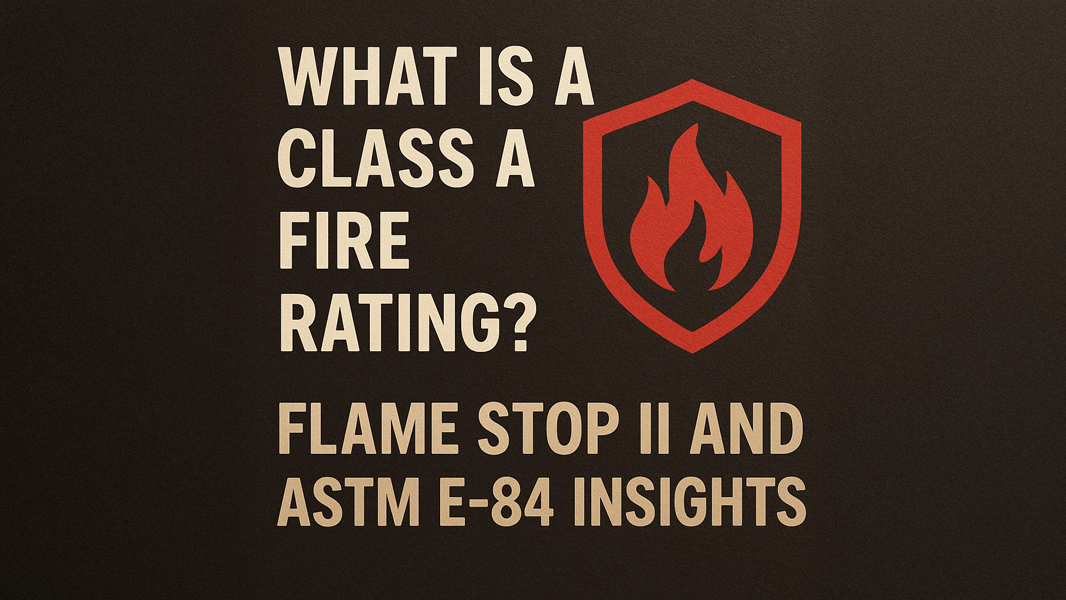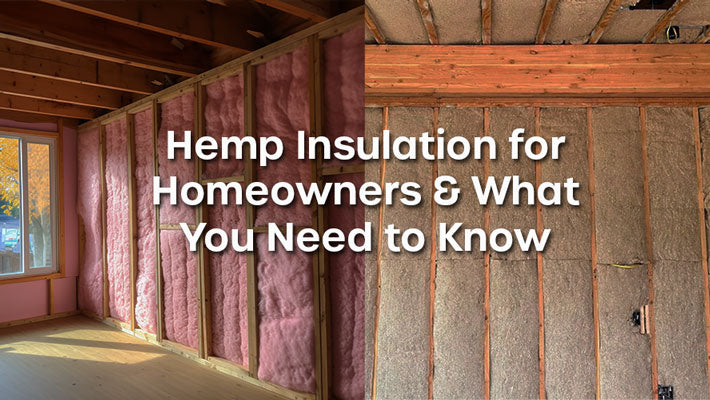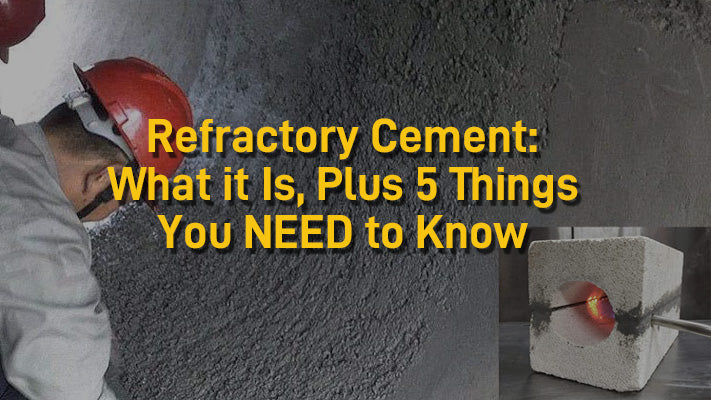Jake Goodwin - Jan 09, 2022
Material Warehouse - Phone (800) 567-5358
Email: support@mymaterialwarehouse.com
5 Reasons Why ICF Construction is Better

ICF buildings have many advantages over traditional wood framed buildings
There are different ways to construct a home or building, many of which have been around for centuries, but there is one particular method we want to go over today: ICF construction. Many people are wondering exactly what it is and how it can benefit them, and there is a lot to cover. But more importantly, Is ICF better than traditional wood framed construction?
ICF construction is excellent at insulating homes and reducing HVAC costs. ICF is also sturdy enough to hold up against violent storms and natural disasters such as fires, earthquakes, and high winds. Structures that utilize ICF also last for 300+ years.
You can end up saving a great deal of money on energy costs over time due to ICFs insulation properties, and not only that, you run less of a risk of your home being damaged or deteriorating over time. We will be going over all aspects of ICF construction and giving you the facts and why it should be considered for your next project. If you'd like to learn more, we encourage you to keep reading.
5 reasons ICF is Better than Wood Framed Construction
- Extremely Energy Efficient Lowers HVAC costs
- Superior Structural Integrity
- Soundproofing and Privacy
- Last Longer than Wood Framed Buildings
- Net Zero Eco Building Standards
Before we discuss all the benefits of this new building technology we must first go over what exactly ICF is and how it used.
What Is ICF Construction?
Insulated concrete form (ICF) is a system of expanded polystyrene (EPS) rigid insulation blocks separated with vinyl webbing. It is used as an incorporated foam form for pouring a concrete wall, rather than a traditional wood plank or plywood molds. ICF blocks come in interlocking sections, so a wall system fits snugly together.
After the blocks are set up, concrete is poured, and finishes such as siding and shingles are attached to fastener strips embedded in the insulating material.
Several steps of the construction process are made quicker because the insulating material and fastener strips are contained with the ICF blocks. Wall thickness is often influenced by the soil condition and the quantity of support that the overlying parts of construction requirements.
There is a reason why ICFs are increasing in popularity, as more people begin to discover the benefits of it.
A Look at an ICF Block

ICF Block diagram photo courtesy of dedicatedrc.com
1. ICF is Extremely Energy Efficient Lowering HVAC costs
ICF's thermal efficiency frequently translates into concrete financial savings for building owners, which can utilize fewer insulation materials throughout the building and invest fewer resources preserving comfort following building.
But efficiency is a double-sided coin using ICF. Along with energy efficiency for your home, ICF brings substantial efficiency to the worksite with the simplicity of setup. Whether it's an ICF pool, cellar, or other construction, the lightweight ICF design and too little requirement for heavy equipment in the building procedure make it economical and easy to construct with ICF.
With less gear, less labor, and shorter construction times, ICF will make building more efficient and affordable on day one.
Since ICF cubes are well insulated, they can frequently remove the demand for conventional thermal insulating material efficiently. ICF cubes keep warmth in and cold out using extreme efficiency, permitting homeowners to cut back on their electricity bills every month and may give them the chance to downsize to smaller HVAC units. This thermal value goes far beyond houses and other homes.
For example, let's take swimming pools; with no ICF, the typical sized pool loses nearly 80% of its heat through the floor and sides. But with ICF, pools possess continuous insulation that runs around the floor, inside and outside the swimming pool. This decreases heat loss and can decrease pool heating costs by up to 60 percent.
"The typical swimming pool looses 80% of its
heat through the floors and sides"
Below pictured ICF pool construction enables 60% heating cost reduction
Furthermore, due to their resistance to rust, mildew, and heat, ICF blocks are also an excellent way to build a cellar. The extra thermal efficiency may even remove the necessity to install insulation all over the cellar, based on how cold it is in the area.
How Does ICF Save You Money?
Building a concrete construction using insulating concrete forms (ICFs) conserves money and energy. The larger insulation, tighter structure, and temperature-smoothing bulk of these walls preserve heating and cooling much better than traditional wood-frame walls.
A normal 2000 square foot building in the middle of the U.S. will store roughly $200 in heating expenses and $65 in air conditioning annually.
Is There Proof?
The larger the building, the larger the savings. In colder regions of the U.S. and Canada, heating savings will probably be more cooling savings less. In warmer regions, heating savings will be less and heating savings will be more.
The energy savings quotes stem from a study of single-family homes spread throughout the U.S. and Canada. Researchers gathered information on 58 homes whatsoever. Half had outside walls built with concrete with ICFs manufactured from expanded polystyrene (EPS) or extruded polystyrene (XPS) foam. Another half were neighboring homes with walls built of timber framework.
The investigators compared the energy invoice of every concrete home to its framework counterpart, carefully adjusting for significant differences to acquire an "apples-to-apples" contrast. Estimates of gear savings are real numbers reported by builders that build ICF homes.
How Does Energy Conservation Work in ICF?
The concrete provides heat-absorbing real estate; This allows it to smooth out big swings in temperatures, meaning that it can retain heat even if the temperatures outside rapidly change. With other materials, you will lose a lot of heat very quickly if this were to happen.
2. ICF has Superior Structural Integrity
In comparison to other substances like wood, ICF cubes are durable. They are resistant to rust, mold, moisture, pest infestation, and other components that may undermine the construction's integrity.
This is due to the metal ties, specially designed and invisibly inside every wall of ICF blocks. These ties maintain the construction solid and undamaged during the most intense problems.
Thus, many intense weather buildings and shelters in hazardous weather regions are presently being constructed with ICF blocks. ICF houses and buildings possess an established history of supplying security in these ailments.
ICF Construction Creates a Durable Structure
In addition to energy efficiency, ICFs also supply resilient buildings that withstand harsh weather events like hurricanes and floods better than stick-built construction. Many new ICF homes include a secure room designed for emergency circumstances.
ICF constructed buildings and homes can withstand wind speeds of up to 200 mph, which is a true testament of their durability
- Wind Resistant
- Impact Resistant
- Fire Resistant
- Seismic Resistant
Wood-frame houses have insulation openings and thermal bridging by which valuable energy is lost. The ICF structure isn't affected by these problems and will have an R-20 into R-28 rating for its whole life. ICFs are resilient and extend protection against flames, fires, severe storms, and flooding. ICF buildings could withstand storms of 200 mph (compared to the 120 miles of stick-framed homes) and possess a 4-hour fire evaluation.
Also, since ICFs are created out of concrete, they do not rust or mold and aren't influenced by pests, as is true with wood-frame structures.
ICF Home Survives Hurricane Harvey Nearly Unscathed
The following is a story of an ICF Home stranding the test of Hurricane force winds.
Fox Blocks ICF home built to withstand a storm
3. ICF Provides Greater Soundproofing and Privacy
As yet another positive result of the exceptional insulation, ICF also supplies important acoustic barrier between partitions. Sound dampening is largely a function of mass or rather density and having highly insulated R-23 walls with 6”-12” concrete core will definitely help deaden sound.
ICF wall systems' thick concrete walls reduce sound by 30%, which makes them an ideal alternative for buildings nearby high traffic zones.
Typical wood framed buildings with wood framing and 3/12” Insulation have a Sound Transmission Classification (STC) of 38 where ICF structures with a 6” Core rating range in the 50-55 range. These numbers might not mean much to you or I, but the difference between a 38 FSTC and 55 is the difference between between understanding someone through a wall talking normally with a loud voice, and not hearing the same person someone shouting at the top of their lungs.
The following chart shows how STC Rating Scale works and just how dramatic a difference good insulation makes for indoor privacy between walls.
| STC Rating | Expected Privacy Level |
|---|---|
| 25 | Typical speech volume easily understood |
| 30 | Typical speech volume not understood |
| 35 | Loud speech volume somewhat understood |
| 40 | Loud speech volume heard but not understood |
| 45 | Loud speech volume barely heard |
| 50 | Shouting volume barely heard |
| 55 | Shouting volume not heard at all |
Above data sourced from Quieting: A Practical Guide to Noise Control NBS Handbook 119,
A main acoustic benefit of ICF over traditional wood framing is ICFs ability to dampen low frequency such as the bass sound pollution produced from nearby traffic, or mass transportation such as a trains or airplanes. ICF is ideal in urban city construction as it lessens the sound transmitted by that apartment neighbor’s sub-woofer, or that freeway right next to your apartment complex downtown.
This leaves ICF not just a fantastic match for residential jobs where quiet and peace are a top priority, but also for business settings where soundproofing is imperative to the construction's central purpose. By way of instance, movie theaters are usually assembled with ICF. Thus, not only will ICF frequently remove the need for traditional insulation, but it also prevents the requirement of installing acoustic insulating panels too.
4. ICF Homes Build Faster Than Wood Framed Buildings
Among the biggest benefits of using ICF is the constant insulation on both sides of the wall that practically eliminates thermal bridging and energy loss. An ICF home can reduce energy bills in half and achieve a HERS index in the 40-50 range, so they're outperforming existing construction codes by 50 to 60 percent.
To achieve a similar degree of energy efficiency, a typical wood-frame house would demand an "energy upgrade" that adds about $2,640 to a typical home cost of $200,000 (roughly $1.32 per square ft of living area). This amount is equal to about one-third of the cost difference between ICF and average wood- frame house construction.
According to the HUD report, many ICF homeowners are willing to pay a bit extra on the front for downstream energy cost savings, not to mention the benefits of added security and comfort.
Time Lapse Video of ICF House - 4 Min
Reduced Labor Costs
ICF units are made of EPS foam and the forms can be easily managed by 1-2 people. This enables much faster framing so that the exterior walls can be erected in a few weeks and concrete fill can be done at a incredible speed compared to traditional wood framing which can take 5-8 weeks depending on the size and layout of the plans.
ICF construction reduces the average home build by 2-4 months
5. ICF Assists Net Zero Eco Building Standards
Net zero (NZE, or NZEB) is the all out Gold standard when it comes to building green. The term means that a building or project will use less energy than it generates.
The main method of getting to NZE with ICF is through its high thermal wall rating and long life. When ICF is combined with other green technologies such as Solar power an ICF home can retain the HVAC energy it needs and store enough to give some back to the grid.
Having a home that can last 5-10 generations is also a major win environmentally as additional resources will not be needed to rehab and re-outfit an existing older home every 60 years.
Another largely looked environmental advantage of ICF is improved indoor air quality. There will be no off-gassing from VOC building materials and no wall bays that can become affected by mold from water damage.
Some people that are allergen sensitive will be glad to learn that ICF is pest resistant. Dust mites that can gain traction in humid homes will not be able to comfortably reside in ICF where it reduces the humidity to 50% or less.
Final Thoughts
Because of their excellent insulating properties, structural integrity, longevity, and fire resistance, ICFs are one of the better choices for constructing a new home or building. It will save you money in the long run, and they provide peace of mind for decades.
In addition, ICF is slightly more expensive initially than traditional wood framed homes, but becomes competitive with high wood prices. Ultimately ICF is a premium product and saves money long term from reduced energy need.
Jake Goodwin - Phone (800) 567-5358
Email: support @mymaterialwarehouse.com
Sources:
- ProudGreenHome: 5 Things You Didn't Know About ICF construction
- Rise: ICF Construction: Everything You Need to Know
- Common Sense Home: ICF Construction - What You Need to Know About an ICF Home
- Quieting: A Practical Guide to Noise Control NBS Handbook 11
- icfmag: Sound Attenuation An Overlooked Benefit
- Fox Blocks: Is ICF Construction Worth the Cost for Commercial Buildings




